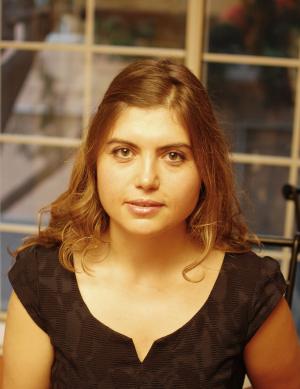With Google Research Award, Mariana Raykova Develops Data-Sharing Techniques

For work on developing optimal privacy guarantees for massive databases, Mariana Raykova has received a Google Faculty Research Award.
 Raykova, an assistant professor of computer science, aims to create a program that allows multiple users to share data without running afoul of privacy concerns and legal restrictions.
Raykova, an assistant professor of computer science, aims to create a program that allows multiple users to share data without running afoul of privacy concerns and legal restrictions.
For instance, two or three hospitals may need to share information about a particular medical procedure of a patient. However, due to HIPAA and other privacy concerns, the patient’s other medical data shouldn’t be open to all three parties. Raykova’s group is developing cryptographic techniques that allow the various parties to design a model that fits their specific needs.
“You can try to write legal agreements where you say ‘We will look at the data together but will not use it for anything else.’ But with such legal agreements it becomes a very complex question of how do you really prove that the data was never used again for anything else? In this setting, cryptography and the tools that we’re developing give us a kind of provable guarantee.”
Raykova notes that her team only develops the techniques, and companies can use them how they fit. She doesn’t know specifically how Google uses its data, but imagines that her team’s techniques could be useful in a number of ways. The online search company collects a massive amount of data about their users, and then uses machine learning techniques to build models that neatly explain the behavior of those users. Often, the data comes from multiple sources. For example, some companies who have bought ads from Google want to get a sense of how Google users are responding – such as whether they go to the website, or buying the products. On the other hand, companies buying the ads might have data useful to Google about users who go to their websites.
Again, the issue comes down to how to share some certain information with certain parties without divulging other information. The same techniques that Raykova is developing could be of value for numerous other uses, such as for tax and judicial databases.
Developing techniques for secure computation has been an active area in cryptography for a long time.
“One of the main challenges that remains is efficiency,” said Raykova, who will receive next month the John and Samuel Bard Award in Medicine and Science at the commencement ceremony of her alma mater, Bard College. “A lot of these techniques still introduce a lot of overhead when you try to translate a regular computation into a secure computation. So, much of the most recent work has been on optimizing these techniques and developing implementations.”

